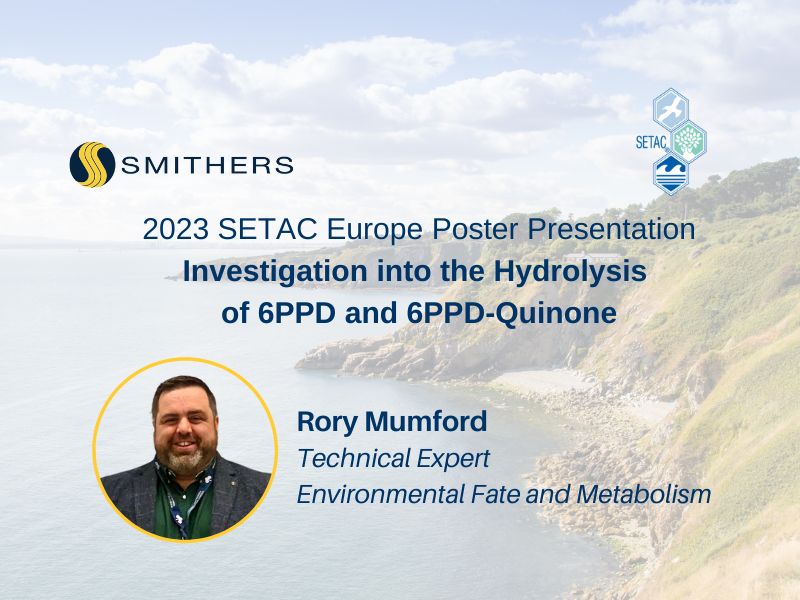2023 SETAC Europe Presentations
Smithers scientists presented at the SETAC Europe Annual Meeting in Dublin, 30 April - 4 May.

Research into Urban Runoff Mortality Syndrome (URMS) has sought to identify some of the pollutants that are potentially toxic to species present in urban watercourses. Certain species were identified as being particularly sensitive to 6PPD-quinone, a transformation product of a 6PPD, which is one of the most widely used antiozonants present in tires and other rubber products produced and used globally. Literature has suggested that tire and road wear particles (TRWP) are a potential source of 6PPD-quinone in watercourses.
The current study was undertaken to further understand the behavior of 6PPD and 6PPD-quinone once they have entered the aquatic environment. 14C-radiolabelled 6PPD and 6PPD-quinone were synthesized to aid the tracking of transformation products throughout the study. The hydrolytic behavior of 6PPD and 6PPD-quinone were studied through the environmentally-relevant pH range using the standard OECD TG111 buffers. Because trace elements are known to impact the rates and the routes of transformation in the environment, sterile natural waters were used to assess the influence of alkalinity, hardness, salinity, and trace element content.
Comparison with active natural water was made to assess the biotic effect on hydrolysis and transformation.
Rory Mumford, Technical Expert, presented this research at the SETAC Europe 33rd Annual Meeting, 30 April – 4 May 2023, in Dublin, Ireland.